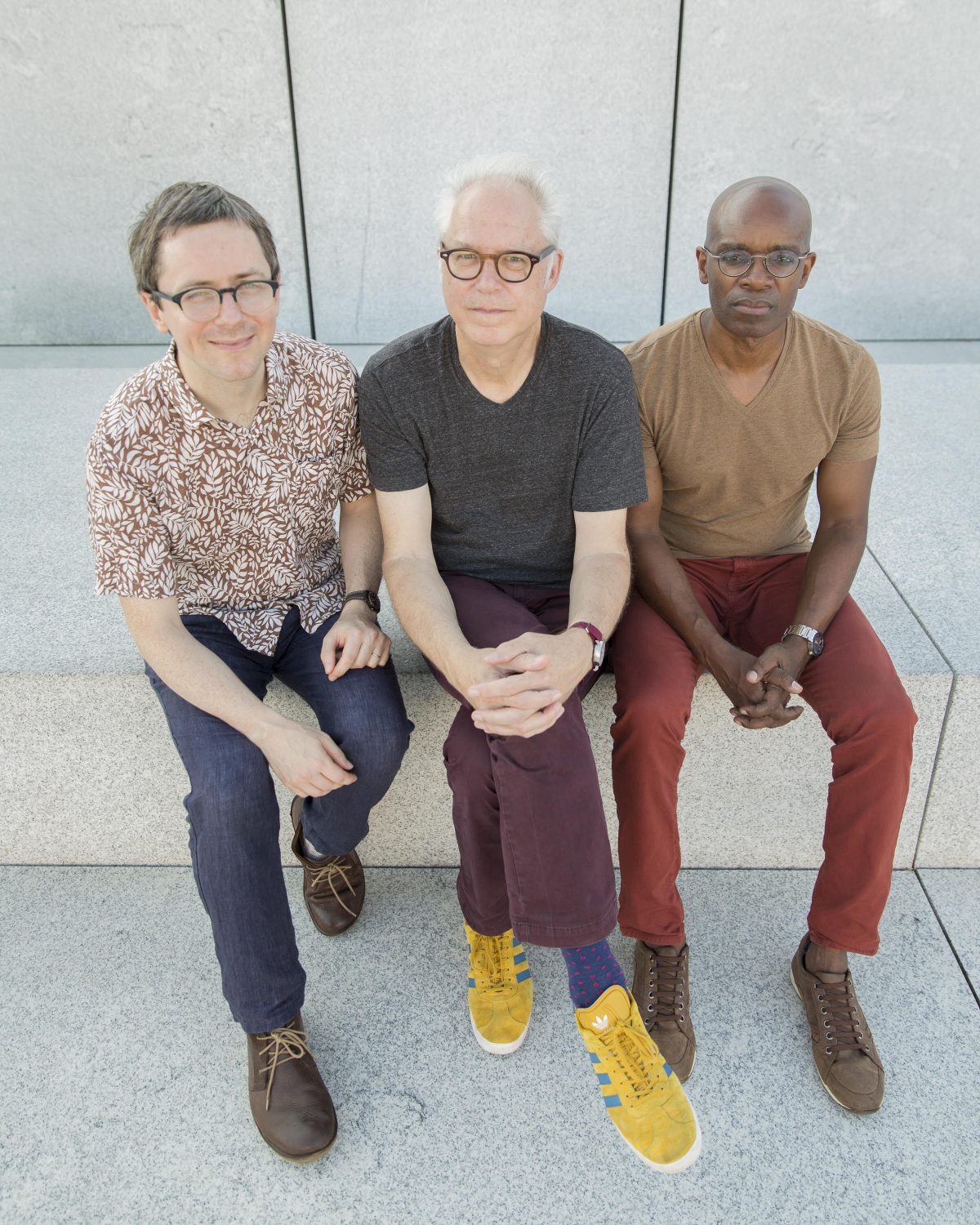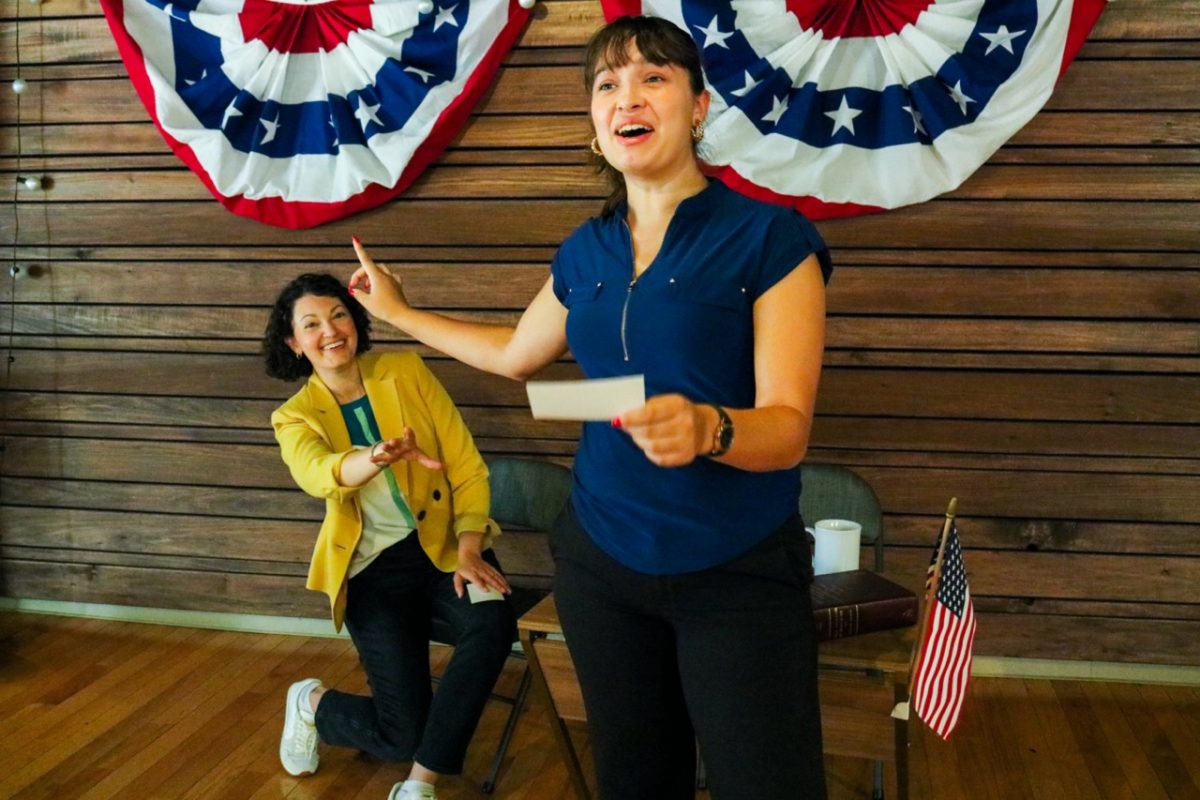It’s all too easy to get disgruntled about some of the usual entertainment in a tight town like ours—that is, if you close your eyes and ears too tightly and just stay home all the time. Here are some of the events that made me glad I got my ass off of the couch.
Please Don’t Tell
March 9, The Southern Café & Music Hall
After years and years—first as a piano and cello duo, and since 2021 as a trio with violin—Please Don’t Tell finally committed its feminist tilt of Victorian parlor violence to record, and held this Spirit Ball to serve as an audio coming out party of sorts. Though the annunciated operatics of pianist and lead vocalist Christina Fleming were confined to an EP’s worth of tracks on vinyl and other platforms, they were given a much longer runway on which to soar at the Southern. The lengthy set’s highlights were elevated further by violinist/vocalist Anna Hennessy’s adroit musicianship, while cellist Nicole Rimel’s spooked-out presence stayed thematically on brand. PDT wrapped up the somberly festive evening by ghosting on to the stage hand-in-hand, gushing forth with an a capella number about leading a man to the woods to die. Good times!
Temple Grandin
May 21,The Paramount Theater
A talk with autism and animal behavior expert Dr. Temple Grandin is a lot to take in at one sitting. But to get a handle on how other brains operate by a living example and proponent of neurodiversity is perhaps the best way to recognize the value that different cognitive styles hold for education, employment, and society. As a visual thinker, Grandin explained that her cognition type represents one kind of thinking—in pictures—while patterns or words are the other overriding ways of understanding the world. Surprisingly, the Colorado State University College of Agricultural Sciences faculty member, who came into fame with her pioneering work redesigning slaughterhouses to lessen trauma and anxiety in livestock, drew a line between neurodivergence and inventors, from Michelangelo to Elon Musk. In doing so, she stressed the need for parents and schools to give autistic (and potentially autistic) children more hands-on ways to tinker and thrive through science projects, car repair, animal care, craft hobbies, playing and writing music, and building machines, among other ideas.
Ruby The Hatchet
June 22, The Jefferson Theater
Baroness may have headlined the show, but Philadelphia-area doom-chugging Ruby The Hatchet brought an indomitable fire to the night. Jillian Taylor’s gritty vocals recalled the pantheon of classic hard rock’s most celebrated practitioners and paved the way for a churning and captivating demonstration of their uncompromisingly heavy and dramatic songwriting style. A charged-up track like “The Change” and the righteous fuzz of “Primitive Man” were rivaled only by the surprise cover of Quarterflash’s top-10 hit “Harden My Heart.” The overwhelmingly metal fan crowd, seemingly surprised at its own memory, sang along with the choruses. No doubt they were swayed by keyboardist Sean Hur’s busting out of a saxophone to nail the song’s signature horn line, born amidst the power ballad schmaltz of the early ’80s.
Pete Davidson
June 27, The Paramount Theater
Everyone’s favorite controversy-stirring vulgarian, Pete Davidson brought his Prehab Tour to town, furiously driven with all of the honest self-inflicted invectives that provide an unhealthy excuse to laugh along with, or directly at, him—and that’s what complicates the King of Staten Island star’s stand-up. You feel bad for the dude, but not that bad when all is said and done because, well, you’re laughing and he’s a celebrity. So here he was, claiming to have kicked ketamine and coke, but despite lessening the amount, still sticking with pot. And what happens? He goes on to cancel a chunk of his tour the following month in a too-accurate prediction or self-fulfilling prophecy, checking himself into a facility for mental health treatment. If anyone (or everyone?) saw that time-out coming, it didn’t make his stand-up any less funny, and therein lies the problem on the audience’s side and/or the source of the man’s talent: tragedy+cannabis+no values=comedy.
“Out of Context”
October 4–November 22, Second Street Gallery
A six-person group show exquisitely captured what curator and contributing artist Paul Brainard set out to do with “Out of Context”: Let the art do the talking for this complicated and engaging collection of works. That said, many titles were nothing less than intriguing, and, at times, hilarious. Amber Stanton’s striking protagonist females in various states of undress searched for answers across fantastic landscapes (“Soon, Oh Soon the Light”); Jean-Pierre Roy’s “Maybe we’re all just guessing, Margaret” offered a vivid alternative universe bug-out on the traditional Western historical portrait; Miriam Carothers’ five-canvas “SLO Excursion” series caught drunken neon robot rampages; Michael Ryan’s life-size mixed media “The Birthday Party” peered into family figures too close and just too weird; and Hyunjin Park’s eye for detail and intricate color use came to a dozen heads on “I AM Good Looking,” a horizontal panel depicting Brainard, making a rainbow of his expressions.




